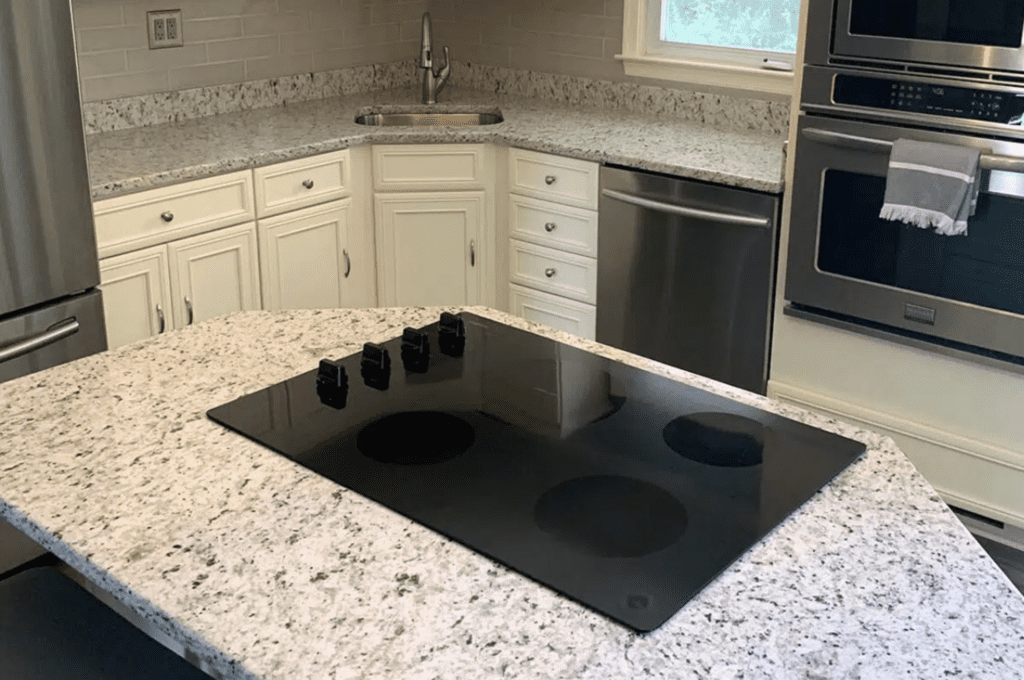
Granite makes a stunning addition to any home – there’s no argument here. Surveys show that when asked to choose between a granite countertop and a roof, the majority of homeowners actually opt for granite. If that’s not a testament to its popularity and appeal, we don’t know what is. There is one thing that deters people from picking granite, though – the price. But while there’s no denying that granite is an investment, it’s also not true that it will add a massive, irreparable dent to your wallet. Well, not if you know the insider tips and tricks to pick a granite that checks all the quality boxes. We tell you just how to do this.
Consider These Factors to Remain In Budget
When it comes to deciding whether your granite countertop will be a big investment or a very big investment, there are certain factors that come into play. Some of the key ones to consider are:
Location of the company. Granite slabs are extremely heavy, so it stands to reason that from a logistic perspective, the cost will tend to go up as the distance increases. So, to bring down your cost, try and look for a local supplier. Large, national companies or exotic, distant suppliers might have tempting offers, but you also have to factor in the shipping cost, which can tend to be steep. By buying from a local supplier, you can bring down your cost to a big extent, plus they will factor in a more affordable price for installation if they are in the same area as you. But here, don’t just go with the first local firm you find. Just because they are in your area, doesn’t mean they are the right fit for you. Instead, pick more than one option and then do your research, ask around to find people who have used them, check out their website, meet them to review their credentials, and only after all of this, go ahead and finalize the one that seems the most suitable.
Wholesale options. If you are looking at adding more than just one countertop and have multiple properties that need granite slabs, try to see if getting them wholesale is an option. This will reduce the cost, as they will most likely come to you directly from the quarry.
Quality of the stone. Granite comes in different qualities and thicknesses. Thinner and more affordable stones are typically 2cm (¾”), and a higher quality granite is going to be 3cm thick (1 ¼”). It is important to only purchase 3cm materials as it is far less prone to cracking or other forms of damage down the road. An essential aspect that can affect the quality of a slab of granite is the type of resins embedded into the stone. This can be difficult to determine by looking at it. If you look at the slab and there are hard yellow patches that appear to be cracking this could be a sign of a lower quality resin or of slabs that were left out in the sun for long periods of time. Working with a trusted vendor that only sells 3cm premium materials with high-quality resins will ensure you are purchasing a quality product.
Size of the slab. Oversized pieces such as very large islands or complex shapes which require additional laborers may increase the cost of your project as they are difficult to move. Shapes such as batwings or very large pieces with no seams will cause lower yield during the fabrication process and may require additional slabs to complete the project, which will increase the overall cost of your new countertops.
Color of the slab. This quarried stone comes in a breathtaking array of natural colors that each have its own unique swirls, flecks, depths, and patterns. On the whole, more consistent materials tend to be more affordable, as this type of granite is found more abundantly all across the globe and is typically easier to quarry. A good rule of thumb is the more movement and unique looking the material is, the more expensive as it tends to be more time-consuming to fabricate, harder to quarry, and higher in demand.
The finish. As with colors, you get a variety of finishes with granite, and the cost can either go up or come down depending on what you choose. By far, the most popular and affordable option is a polished finish that is also the most low-maintenance in terms of upkeep over the years. If you want to go more upscale, look at something like leather or a honed finish, but remember that this will sometimes cost you more.
The design complexity. Countertops that are customized as much as possible can go a long way in elevating the look of the room, but different customizations come at different price points. If you are looking for complex designs or are looking at adding in your own quirks, extra seams, and an edge style that’s unique, it may increase the cost of your granite.
Contact Us Today
When you want only the best for your home, it makes sense to go to the professionals who can deliver just this. Not only do you get the right expertise you need, but it can also be a more economically viable option for your home. A granite expert will be able to do everything from helping you choose the slab that is the perfect fit for your home to installing the finished product in much less time and at the best possible rate that matches your budget. That’s what we do at GranitePro. Contact us today to see how we can help you add unique countertops to really elevate your home.
